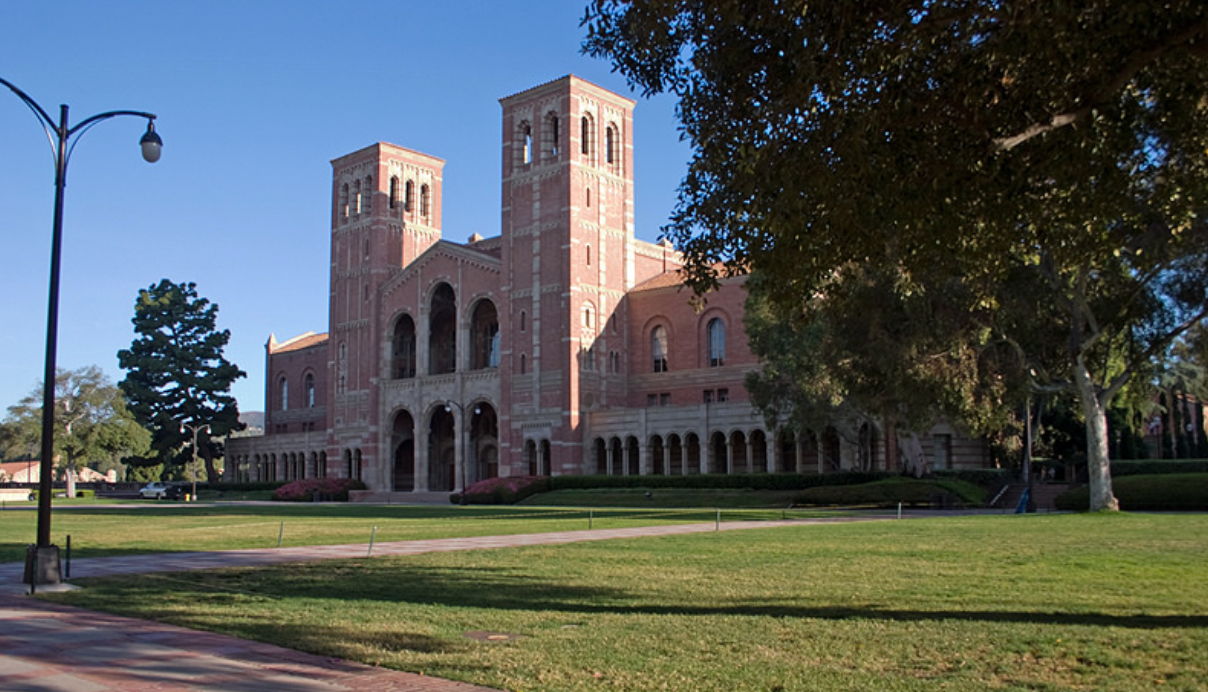I Sat in on a Republicans’ Meeting — Here’s What I Ascertained

Photo by Rictor Norton & David Allen via CreativeCommons
UCLA is a place filled with opportunities that cultivate culture and promote diversity, right? That’s why after a day of classes filled with learning about the gentrification, oppression, and discrimination permeating throughout the country, I attended a student Republican meeting — almost as a numbing palate cleanser of the useful and valid information I absorb all day.
When I walked into the meeting room, I noticed the giant red flag branded with an elephant proudly hung outside, stating loudly to the world that “Yes, there is a College Republican club and that club is here.” I’m not going to lie, I circled around the building multiple times before entering through the door because honestly, my reputation can’t handle this. But then again, I don’t have a “rep” – I’m white. Therefore, I fit right in. That is, of course, until I get to the complementary pizza, of which there are two options: sausage and pepperoni. Supposedly, a vegetarian can’t be Republican, too. Damn. In terms of gender proportion, it’s a lot better than you might expect. A solid 6 to 1 ratio of men to literally anyone else. Progressive, I know. But let’s get into the actual meeting.
It started off like every other college gathering I have ever attended — with the pledge of allegiance to this blessed country we call home, obviously. Not one, not two, but three American flags were projected onto screens, waving to stimulate the patriotism hiding deep, deep inside my body. It was stated that this is “everyone’s favorite part.” I guess I am the sole minority in this regard, besides the fact that I’m not Republican. But that really seems like a secondary detail here.
The topic up for discussion: diversity in academia. This came as a shock to me because only about a quarter of my professors aren’t white men. However, when this topic was brought up, the people around me could not agree more that there is a problem with diversity in education – the problem being that it has gone “too far.” That’s a new one. Truly though, how can someone argue against diversity within our current political climate? I listened to this presentation just to obtain a minimal grasp on their thought process. Oh, and did I mention that the presenter is a current anthropology professor? It’s Dr. Joseph Manson, to be exact. Apparently, racism and sexism know no bounds.
Do I think there is so much diversity that it takes away from the focus of education? To sum it up succinctly: I disagree.
The argument was that having a diversity requirement for students and hiring diverse faculty actually hinders academia and the significance of diversity. It was discussed that the university only cared about external diversity that can be seen by the outside world and not actual variety. It’s almost like race, gender, sexuality, ability, socio-economic background, and other “external” differences don’t affect people’s experiences and perspectives, and therefore the knowledge they produce and disseminate. As in, there’s definitely no way they could contribute some sort of new perception into a world that has been traditionally dominated by white men for the past millennium. Except, they can, because they do.
Look, the university definitely uses the diversity requirement for their own advantage; the core of the school’s administration are still white men, after all. However, that doesn’t mean the outcomes are any less valid or necessary in terms of advancing academia. Saying these requirements of diversity are merely keeping the prejudice allegations at bay for the school is dismissive. There are faculty and students who are genuinely trying to incorporate diversity into the curriculum and broaden it with new and different perspectives. It invalidates the work and effort of those students and faculty of “diverse” backgrounds — who supposedly benefit from the requirement — by undermining the effort, intelligence, and work they’ve put into their education, painting them as less deserving of academic opportunities and pursuits.
This requirement has its flaws. Though it just barely scrapes the barrel of diversity, it does not mean it should be canceled. The school should look to do more to increase diversity, not formally retract it. It’s sad that this has to be done through official administering instead of a full upheaval of white, heteropatriarchal system, but the alternative would result in no change at all. Taking away this requirement would only regress the changes that have occurred, further silencing those that have been underrepresented in academia since its conception.
But what about my graduate school application? How will I get in if there’s a diversity requirement and I have never experienced legitimate discrimination because I’m in a position of privilege, you may ask? Well, maybe you should think about all the people who haven’t haven’t had access to knowledge production for centuries because of the unchecked discrimination carved into United States’ history, and the people who will continue to be barred from higher education because of the still very apparent, just slightly more monitored, discrimination in education and every other part of society. I’m not sorry to say that increasing diversity shouldn’t be put on hold because of you.
Whether you even notice it or not, the university is a political environment with issues, disagreements, and topics constantly up for discussion and debate. It’s important to pay attention to all sides of the political spectrum, even at school, in order to have an informed political framework and develop a proactive response. Being Republican is not my thing (as I have learned), but taking the time to learn about their thoughts on something highly relevant on campus helped me think about the topic in a different way, further solidifying my own divergent political beliefs.
So Bruin Republicans — thanks, but no thanks.




